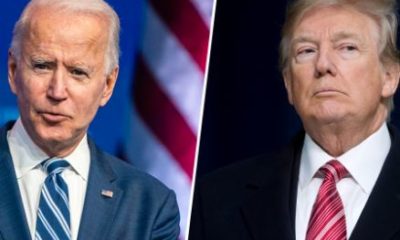World
New UNGA president pledges to continue Security Council reform process

By Arul Louis
United Nations: Mogens Lykketoft, who took over Tuesday as the president of the General Assembly, pledged to continue the Security Council reform efforts carried out by his predecessor Sam Kahamba Kutesa, who broke through the first major hurdle by having a negotiating document accepted by the Assembly.
Speaking to reporters after the inauguration of his presidency, Lykketoft, who was the speaker of Denmark’s parliament, said, “On Security Council reform, I will follow the track laid out by my predecessor Sam Kutesa and the work done by the Jamaican Ambassador Courtenay Rattray, which was rolled over yesterday to this General Assembly session.”
While giving an assurance that he will not stake out a specific position or move it in a particular direction, he said, “I will certainly try to help the process that started in the 69th session will continue on the basis of the work done there.”
Last month after his election as Assembly president, Lykketoft visited New Delhi and met with Prime Minister Narendra Modi, who urged him to press ahead with the Council reform process.
In the final hours of his presidency Monday, Kutesa had the Assembly adopt by consensus his decision that included a negotiating text that would for the first time form the basis of future discussions on Council reforms that was mandated by a summit of world leaders in 2005.
The reform process had been crippled by the absence of a framework text for negotiating reforms because of concerted opposition from China, Pakistan and a group of countries led by Italy. India’s efforts to get a permanent seat on the Council hinged on the negotiations proceeding with a basic document and this was achieved by Kutesa with help from Rattray, whom he appointed to head the Intergovernmental Negotiations (IGN) on the reform process.
Lykketoft, however, veered off from the position taken by Kutesa and India’s Permanent Representative Asoke Kumar Mukerji that the Security Council as it was no composed was failing in its primary mandate of maintaining peace and security and needed to be reformed to become effective.
“It is obvious that at present that there are important issues which are not handled by the Security Council,” Lykketoft said. “We cannot know if any kind of reform in the composition would make that different.”
He added, “But what we can say not predicting the specific outcome-that is not my job to do-but certainly many years ago already the UN decided that we should have the reform so that the Security Council would reflect much better the realities of the 21st Century.”
The election of the successor to Secretary General Ban Ki-moon will be the major task for the Assembly’s 70th session. Lykketoft promised that in a break from the past it would be conducted openly and transparently.
The candidates will be presented to the members in a timely fashion and they will interact with the UN members, he said. “This will something happening for the first time in the history of the united nations and I see that as a major step forward.”
So far, Secretary Generals picked by the five permanent members of the Council in backroom deals and the election by the Assembly was more of a formality.
Lykketoft is an economist who has been a minister and the leader of Denmark’s Social Democrat Party.
World
Lockdowns in China Force Urban Communities to Defy Censorship and Vent Frustration Online

Shanghai’s rich middle class is leading a wave of online dissent over the strict and prolonged lockdowns imposed in various parts of the country. Chinese internet censorship is struggling as patience is wearing thin in many urban centers, coming up with creative forms of online protests.
Social Media Posts Revealing Lockdown Tension in Shanghai
Drawn-out lockdowns are nothing new in China as authorities insist with the nation’s zero-Covid policy since the start of the pandemic. Currently over This time around, however, metropolitan areas like Shanghai are increasingly difficult to keep quiet, given that its more than 25 million residents have seen weeks of total isolation along with food shortages and many other service interruptions.
Dozens of towns and reportedly over 300 million Chinese citizens have been affected by lockdowns of different severity. As expected, urban netizens have been most outspoken over their difficulties by finding creative ways to get around state censorship and bans placed on topics, news comments and spontaneous campaigns.
Shanghai residents have been using mobile proxies and hijacking seemingly unrelated hashtags to talk about healthcare issues, delivery failures and the overall severity of their situation. The “positive energy” that the Chinese government wants to transmit during the recent prolonged series of lockdowns does not come naturally to those counting food supplies and online censors are working hard to filter words, trending topics and undesired social media sharing.
WeChat groups and message threads are under constant monitoring. Posts questioning the zero-Covid approach have been quickly deleted, including by leading Chinese health experts like Dr. Zhong Nanshan. Video footage is soon censored and protests and investigations are quickly made to disappear.
Where this has not worked, officials have exposed banners with warnings and outright threats like “watch your own mouth or face punishment”, while drones have been patrolling the city skies. Yet, if anything, this has led to further tensions and unspoken confrontation with Shanghai’s educated and affluent middle class.
Creative Online Solutions Harnessing Civic Energy
Announcements by Chinese social media that they would be publishing the IP addresses of users who “spread rumors” have not helped either. Tech industry research has shown that much of Asia’s tech-savvy population has a habit of using mobile proxies and other privacy tools, quickly finding workarounds to browse the internet freely and talk to the world about the hottest topics.
The sheer volume of forbidden posts is already a challenge for the very censorship system, experts explain. Unable to track all trending hashtags, state workers overlook topics that speak about the US, Ukraine or other popular news. Linking human rights elsewhere to their situation, Chinese online dissidents establish their informal channels and “hijack” the conversation to share personal or publicly relevant information about the Covid suppression in their town.
Sarcastic and satirical posts still dominate. Others hope to evade the censors by replacing words from famous poems or the national anthem. One thing is certain – social media, when harnessed with the right creativity, has proven its ability to mount pressure on the government in even some of the most strictly controlled tech environments like China.























